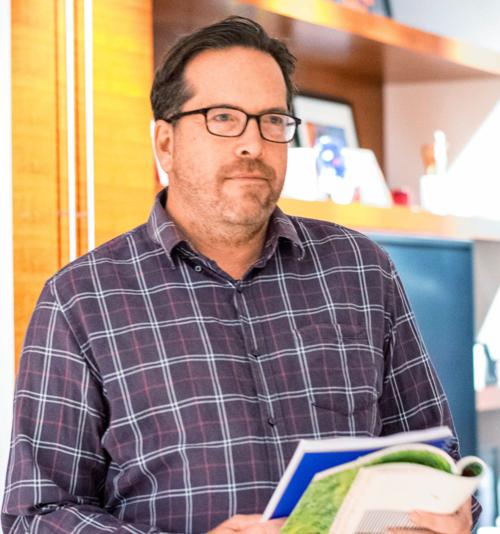Tucson author and journalist Todd Miller, who has traveled around the globe and along the U.S.-Mexico border examining migration, security and climate change, presents two cases. While the pair are thousands of miles apart, a common thread connects the two.
In the Philippines, he talks to people in a poor fishing village on an island where his grandmother was born and raised. The sea level has been rising, disrupting their economy and their lives. The change has been occurring for years and the Filipinos repeatedly tell Miller that they are living “on the front lines of the world’s most urgent issue.”
“This small community ... appears, like so many others across the globe to be on the verge of being completely washed away,” he writes in his new book.
The second is in southern Mexico, in a small town where migrants gather under the strict, watchful eyes of masked Mexican soldiers. The migrants hope to jump on the infamous northbound train, the Beast, or as it known there, la Bestia. There he meets three Honduran men who have fled their home. When Miller asks one of the men why they left for the United States, the young subsistence farmer answered, “There was no rain.”
“His answer is simple and similar to the case of many farmers across the world in the climate era: ‘No hubo lluvia.’”
In Miller’s new book, “Storming the Wall: Climate Change, Migration and Homeland Security,” he examines the confluence of the effects of climate change on global communities, worldwide migration and the rise of fortress countries.
He makes the case that major contributors to climate change are the very same nations that are expending billions and billions of dollars on border barriers to prevent entry to the people who are “climate refugees.”
While no country recognizes the status of climate refugees, Miller writes that they exist and they are migrating.
At a recent presentation at Antigone Books on North Fourth Avenue, Miller told his audience that 21.5 million people across the globe were displaced from 2008 to 2015 due to the effects of climate change or the threat of impending climate-related hazards.
That includes Americans.
Miller, in his book, writes that we have already witnessed scores of climate refugees from Hurricanes Katrina and Sandy, and that California residents have moved elsewhere because of years of drought and wildfires.
Now, with the devastation caused by Hurricanes Harvey, Irma and Maria, more waves of climate refugees will leave Houston and southeast Texas, Florida and Puerto Rico, and the Caribbean countries flattened by the violent storms.
Global migration will confront this country, which already is closing entry to climate refugees, Miller writes.
While President Trump, the head of the Environmental Protection Agency, Scott Pruitt, and key congressional leaders deny climate change, Miller says climate change is not debated or denied in the halls and offices of the National Security Agency and the Department of Defense.
Climate change is ingrained in national security policy, writes Miller, whose first book “Border Patrol Nation” was published in 2014. He has also written for national and local publications.
While Miller reveals the direct and deep connections of climate, migration and security, he also provides some examples of how communities can engage in ecological restoration.
He points to a place east of Douglas-Agua Prieta, where gabions, stone walls, were erected in Mexico within eyesight of the U.S. border wall. Rainwater that used to flow through and erode the land now collects and replenishes the water table, he wrote.
“I was looking at two walls,” he writes. “One barrier was meant to keep people out. The other was based on the economy of ecological function.”
While the bulk of Miller’s research shows that our country is spending billions on militarization and not mitigation, Miller expresses some optimism that change can and will come from local communities and maybe some countries with vision.
“The future is unwritten,” he says. “It can change.”





